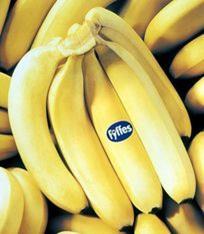
Ireland’s highest court ruled last week that Jim Flavin, founder of business services group DCC, had inside knowledge of Fyffes when he sold €105 million (£70m) of its shares in three separate trading deals in February 2000.
Flavin, who was a Fyffes board member, netted about €85m in profit, the court heard, and Fyffes had been pursuing him ever since. Last week’s decision at the Supreme Court is being hailed as a victory by Fyffes, which successfully brought the appeal against the Irish High Court’s ruling in December 2005 that the information to which Flavin had access in February 2000 was not price sensitive.
The five judges in the Supreme Court ruled unanimously last week that Flavin was in possession of price-sensitive information when the shares were sold. “This evidence is such that . . . it is an inevitable conclusion that the information was price sensitive,” the court said.
The ruling means that the whole issue will drag on until at least October, analysts speculate, when DCC and Fyffes will face each other in the High Court again to wrangle over compensation.
Fyffes, which said it was pleased with the ruling, has previously demanded €85m, the amount that it said Flavin gained from the trade and to which it is entitled under Irish law.
DCC, which had held the Fyffes shares for 20 years, said it would argue for a lower figure. In a statement, it said it did not expect its total liability, including legal costs, to exceed €50m. DCC said that Flavin will remain as executive chairman.
But a Fyffes spokesman said: “The board of Fyffes is pleased that its Supreme Court appeal has been successful.”
Meanwhile, the net of anti-trust charges issued by the European Commission is believed to have widened to include Chiquita, Del Monte, Dole and Noboa, as well as Fyffes. The charges relate to suspicions that the operators ran an illegal cartel for about five years. The commission’s statements of objections are the first formal stage in the proceedings.
Trade sources have said the EU suspects the companies shared confidential data about volumes and prices of imported bananas in order to fix prices at artificially high levels and divide up the market among themselves. Those companies involved can reply to the commission in writing and may also request an oral hearing.
If the commission is not satisfied with the responses, it can fine the groups up to 10 per cent of annual sales; but it is understood that Chiquita could be exempt from the fines, as it was the whistleblower two years ago.



